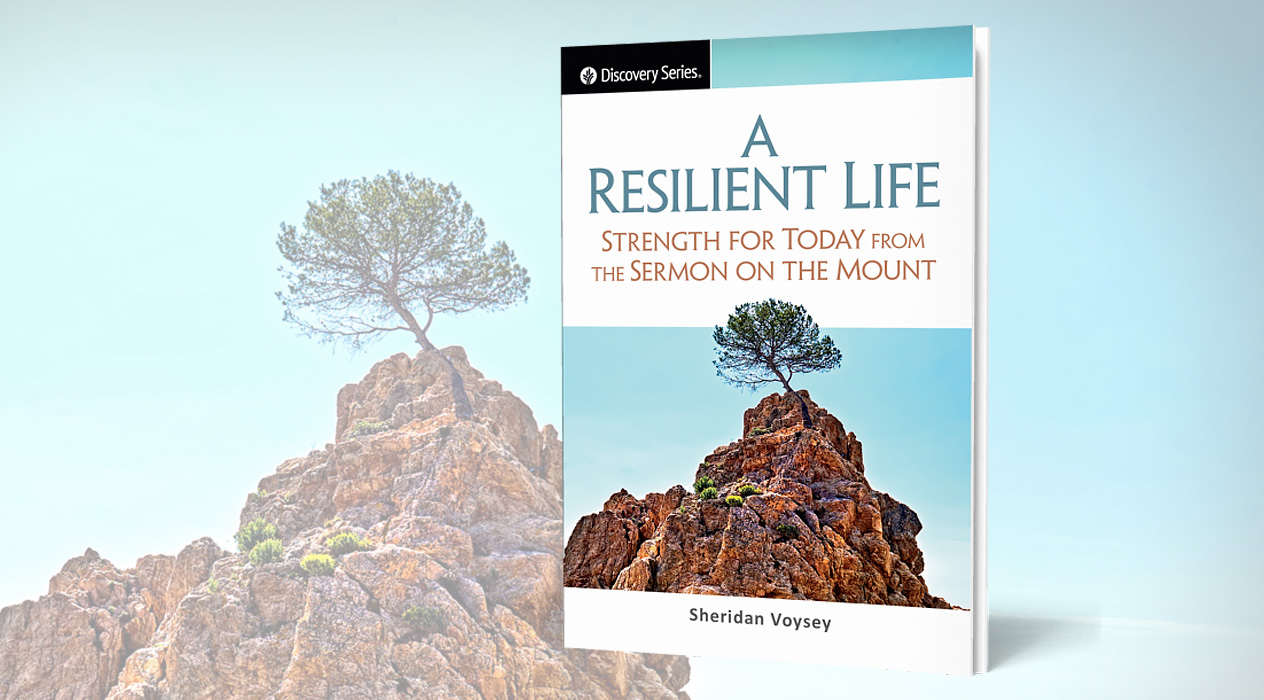052 The Ancient Prayer That Can Change Your Life
Picture: Valerie Everett (Flickr, cc by-sa 2.0)
It is prayed each Sunday in churches. Some of us grew up reciting it daily in school. It can suffer from both neglect and mindless repetition because of its familiarity. But when prayed slowly and with intent, it is possibly the most powerful prayer one can pray, touching every area of our lives. It is The Lord’s Prayer.
When a journalist asked me recently for a lasting outcome from my experiment reading the Sermon on the Mount every day for three months, one thing I pointed to was that I now pray the Lord’s Prayer daily. In this post and podcast I explain why, and give you an exercise to help get the most out of it.
Click To Listen
Podcast: Subscribe in iTunes | Right-click to download | Listen to Other Episodes
The Prayer
Our Father in heaven,
may your name be kept holy.
May your Kingdom come soon. May your will be done on earth, as it is in heaven.
Give us today the food we need, and forgive us our sins,
as we have forgiven those who sin against us.
And don’t let us yield to temptation, but rescue us from the evil one.
(For yours is the kingdom and the power and the glory forever.
Amen.)
(Matthew 6:9–13)
An Exercise
The Lord’s Prayer has been prayed by saints and sinners for two millennia now. It has inspired some of the most influential people in history. Here’s one way of praying it and some notes on the significance of each line. You’ll find an expanded version of what follows in my free ebook Five Practices for a Resilient Life, and I go deeper into the Prayer in my forthcoming book Resilient.
***
 Photo by Jeremy Yap on Unsplash
Photo by Jeremy Yap on Unsplash
FIRST: Read the prayer through slowly, with your eyes following the words but your heart directing them to God. Praying it aloud can help. This will take less than a minute.
SECOND: Read the prayer through again, this time personalising it. “My Father in heaven . . . Give me today the food I need . . . forgive me my sins . . . ” While we can never forget the prayer is corporate and concerned with others too, it’s fine to speak personally to God through it. Again, don’t rush. Pray slowly and deliberately.
THIRD: Now take one more reading of the prayer, but this time linger on each line, inviting God to bring specific people, situations and responses to mind as you pray.
***
My Father . . .
This is intimate, embracing language. God isn’t a faraway deity—he’s close, caring, protecting. Life is about relationships and this is the foundational one. In your own words thank God for loving and accepting you, and treating you as his own precious child.
May your name be kept holy . . .
This prayer recognises that, in talking to God, we are on sacred ground where worship and reverence are in order. Imagine God’s beauty, power, love, and purity, and tell him how you feel in response.
May your kingdom come . . .
Here we pray for God’s peaceful, jubilant, colorful dream for the world to become a reality—for evil to cease and humankind to be ruled once again by him. This is the dream that we’re drawn into.
May your will be done on earth . . .
Things get practical here. God’s will is already done in heaven; we pray now for it to be done on earth—in our lives, homes, offices, universities and communities. Here’s a good place to ask God to intervene in the lives of people who need him, and ask how you can be a part of their solution. In response, expect him to give you some practical tasks to do.
Give me today the food I need . . .
God cares about our needs for food, clothing, work, relationships, accommodation and everything else—and we’re invited to ask him to supply these needs daily. (Remember our conversation on simplicity?) Don’t forget that the original prayer is written in the plural—“Give us today the food we need.” After praying for your own needs, pray for the needs of family, friends, colleagues and the hungry beyond your walls. Again, don’t be surprised to feel a growing desire to help in some way.
Forgive me my sins . . .
All of us have lied, cheated, and lusted. When we’re honest, most of us recognise we have a selfish bent. We want our wills to be done, not God’s. Be specific about the sins you’ve committed and ask God to forgive each of them. Jesus died and rose again so all our sins could be washed off us like mud from our body in a cleansing rain.
As I have forgiven those who sin against me . . .
Bitterness, resentment and revenge have no place in God’s people. Who has wronged you? Who do you need to forgive? You may also be prompted here to seek forgiveness from someone you’ve hurt here.
Don’t let me yield to temptation . . .
Each day brings the temptation to ignore God and take advantage of others. We pray for strength here to live lives that reflect God’s own nature, choosing integrity, faithfulness and generosity over selfishness. God uses this prayer to shape our character into that of Jesus himself.
Rescue me from the evil one . . .
It’s hard to ignore the presence of evil in the world. We as humans must take responsibility for much of it, but Jesus also recognised an evil being (commonly called “Satan”) at work behind the scenes. Father God, however, is greater than any devil.
For yours is the kingdom and the power and the glory forever . . .
These closing words (included in most popular versions of the prayer, though not found in the earliest biblical manuscripts) are appropriate. We began with God and now we end with God, recognising his ownership of the world, his power and his worthiness to direct our lives. Ultimately, life is all about him.
***
Your Response
What role has the Lord’s Prayer had in your life? Leave a comment below now or call me using the ‘Send Voicemail’ button on the right. Please also rate and share this podcast on iTunes to help others discover it!
Announcements
- My new book Resilient releases next Wednesday October 21! Order it now and get 3 FREE bonuses
- Each day this week I’m releasing FREE chapters from the book. You can find them here
- I’ll be speaking at the Woman to Woman and Premier Digital conferences in London soon. Details here
Subscription Links
Subscribe to More Than This and never miss an episode.
![]() Subscribe on your iPad or smartphone
Subscribe on your iPad or smartphone






Rishi Ajay Das
This is really a great prayer, I would like to try it by myself. The process that we prayer for the god allows our soul to open up and receive the great fortune god has given us.
http://www.rishiajaydas.org/
Matt McChlery
Hi Sheridan. Thanks for sharing this. The Lord’s Prayer is so good in so many ways and is sadly often neglected in the more contemporary church expressions. Using it as part of personal prayer and devotion as you suggest is brilliant. I have also tried to bridge the gap by setting it to music of a more contemporary worship nature in order to encourage it to be sung in a congregational setting whilst still sitting comfortably alongside other worship songs we all know and love. Here is a link to the free chord chart and video if anyone is interested?
http://www.mattmcchlery.com/ourfather.html
Allen Browne
Yes, it is an amazing prayer, a great way of focusing our relationship with our Father.
It can be helpful to personalize (my Father, my food, my debts, etc). But the corporate dimension is also worth emphasizing. He’s *our* Father, so I’m your brother. He provides for *us*, so the bread I’ve received I must share. He forgives *our* debts, so we must reconcile.
In Jesus’ prayer, we’re family. I think this is the only time he included us as children of his Father before his resurrection (John 20:17).